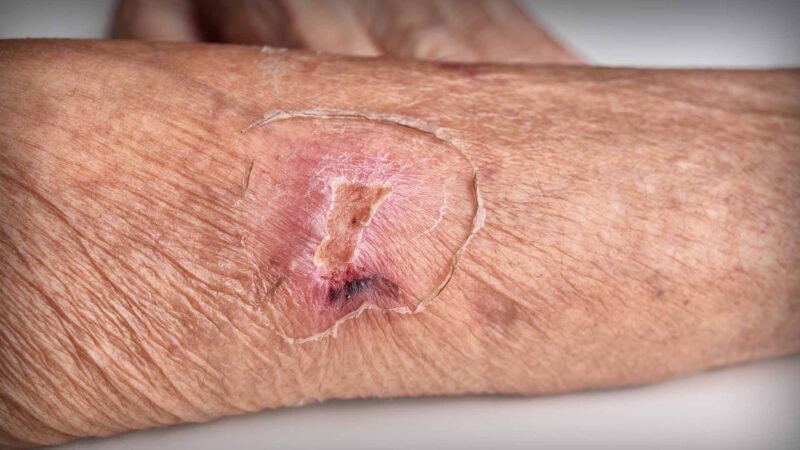CALL TO ACTION FOR HEALTH CARE PROFESSIONALS WILLING TO GIVE THEIR TIME, SKILLS AND RESOURCES FOR THE HOMELESS
People In Health Care
Dr Daniel Nour, Founder of Street Side Medics and
Cardiology Advanced Trainee, Royal North Shore Hospital
Filmed in Sydney, New South Wales | November 2024
Identifying a gap in the healthcare of vulnerable people in New South Wales, Dr Daniel Nour founded Street Side Medics in August 2020, a not-for-profit, GP-led mobile medical service for people experiencing homelessness.
Dr. Daniel Nour is a cardiology advanced trainee at Royal North Shore Hospital and the founder of Street Side Medics, a mobile medical service dedicated to providing GP-led care to individuals experiencing homelessness. The initiative started from a customised van, which serves as a medical clinic, visiting food services and shelters across New South Wales and recently Victoria. Street Side Medics offers free medical care without requiring documentation, ID, or a Medicare card.
Understanding the barriers to healthcare faced by homeless individuals—such as lack of documentation, transportation issues, stigma, and prioritisation of basic needs like shelter and food—Dr. Nour aimed to create a supportive environment for care. His motivation stemmed from a personal experience in London when he encountered a man having a seizure, which opened his eyes to the healthcare challenges faced by the homeless community.
In October, Australian Health Journal spoke with Dr Nour at the MedTech24 conference organised by the Medical Technology Association of Australia, where he was the keynote speaker. He talks about the origins of Street Side Medics, the organisation’s growth across New South Wales as well as Victoria, the impact of point of care pathology related technology and the dedication of the health care professionals giving up their time on a voluntary basis for the homeless requiring medical attention.
Since launching in August 2020, Street Side Medics has expanded to ten clinics in New South Wales and one in Victoria, supported by approximately 600 volunteers. The average attendance at clinics ranges from 10 to 20 people per night, influenced by weather conditions. The service leverages medical technology, such as point-of-care testing machines, to deliver quick and effective diagnoses, empowering patients with immediate care solutions. Dr. Nour’s commitment stems from both a personal belief in giving back to the community and a desire to enhance the lives of those he serves.
Dr. Daniel Nour is deeply moved by the generosity of Street Side Medics volunteers who dedicate their time each week, despite their busy lives. He highlights two main reasons for their involvement: the rewarding opportunity to use professional skills for community benefit and the profound fulfilment gained from helping those who lack access to care. Dr. Nour emphasises that volunteers provide essential services that many would otherwise miss. He calls on healthcare professionals—specialists, General Practitioners, junior doctors, and nurses—to join Street Side Medics, as the organisation continues to grow and needs dedicated individuals to support their mission.
With his leadership and social consciousness, Dr Nour is committed to making a real difference to the lives of many Australians. He’s also making significant improvements to society. In 2022 he was awarded the 2022 Young Australian of the Year.
You Might also like
-
The OT who builds neuro-affirming, trauma-informed therapy environments
Rochelle Mutton is a visionary leader and paediatric occupational therapist, best known for her work in creating neuro-affirming, trauma-informed therapy environments that empower children and families. As the Founder and Lead OT of Motivate Kids in South Australia, she has grown the practice over 8 years from a two-person team into a thriving organisation of over 40 staff across three purpose designed studios.
-
Smart technology in wound care
Throughout her journey around wound care, Santosh Kaur was frustrated to see the simple gaps in wound care resulting in negative patient outcomes. Santosh is the founder of SmartHeal which launched in 2020.
SmartHeal replaces the nurses taking cumbersome manual measurements and manual sharing of important wound data with a no touch technique. It aims for healthcare professionals to have live remote access to wound data, make wound assessments and assist with speech to text notes thus saving time, cost and people. SmartHeal also aims to assist healthcare professionals in providing optimum wound care by analysing the wound tissue for infection, moisture and providing suggestions for suitable dressing.
-
World first in rural and remote nursing
In March 2023, the Australian Government released the National Rural and Remote Nursing Generalist Framework 2023–2027. The Framework is a world first and describes the unique context of practice and core capabilities for rural and remote Registered Nurses in Australia.
The Framework was developed by the Office of the National Rural Health Commissioner and Australian Health Journal spoke with National Rural Health Commissioner, Adjunct Professor Ruth Stewart, and Deputy National Rural Health Commissioner – Nursing and Midwifery, Adjunct Professor Shelley Nowlan, on the importance of rural and remote nursing and of the Framework itself.



